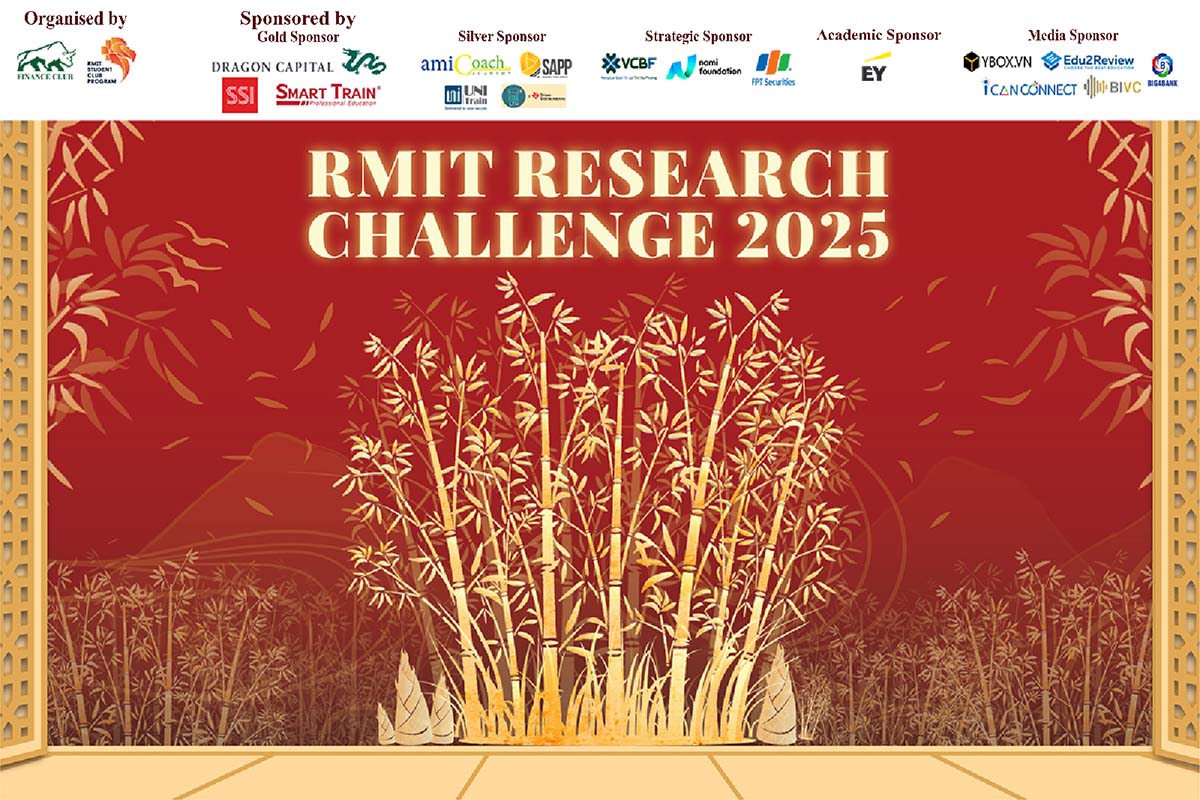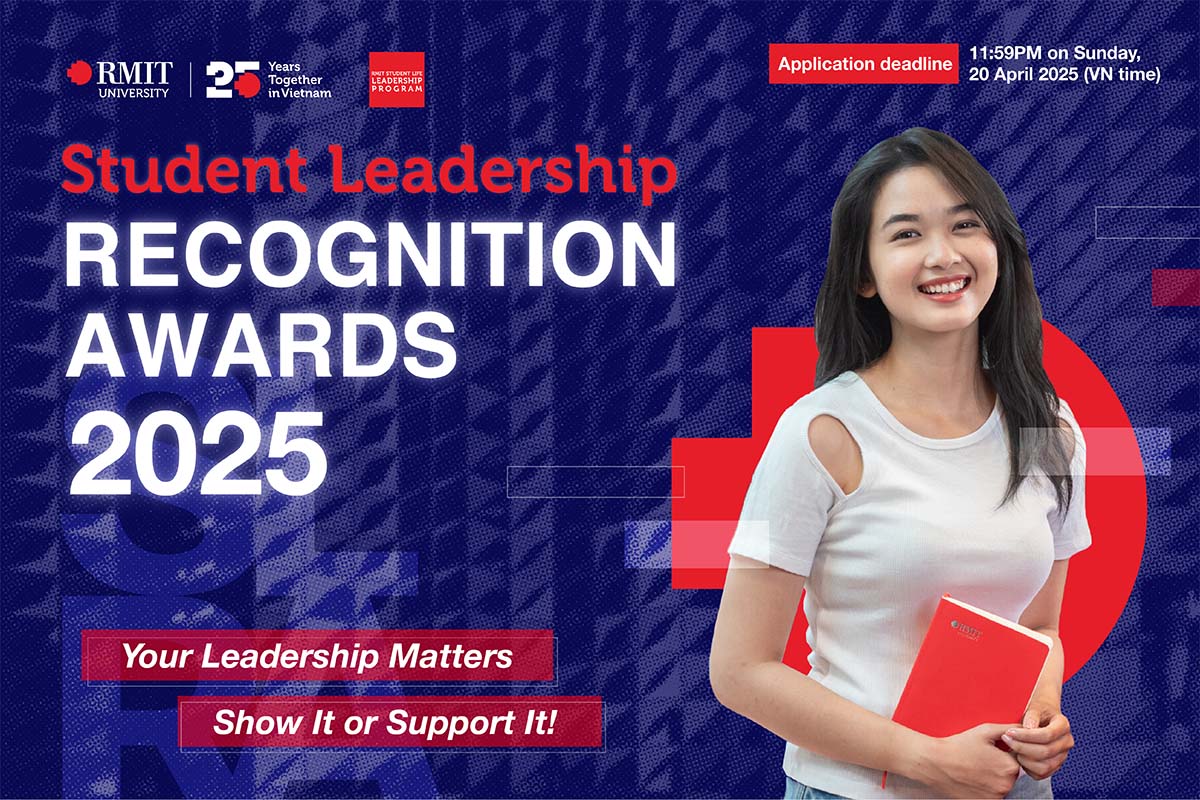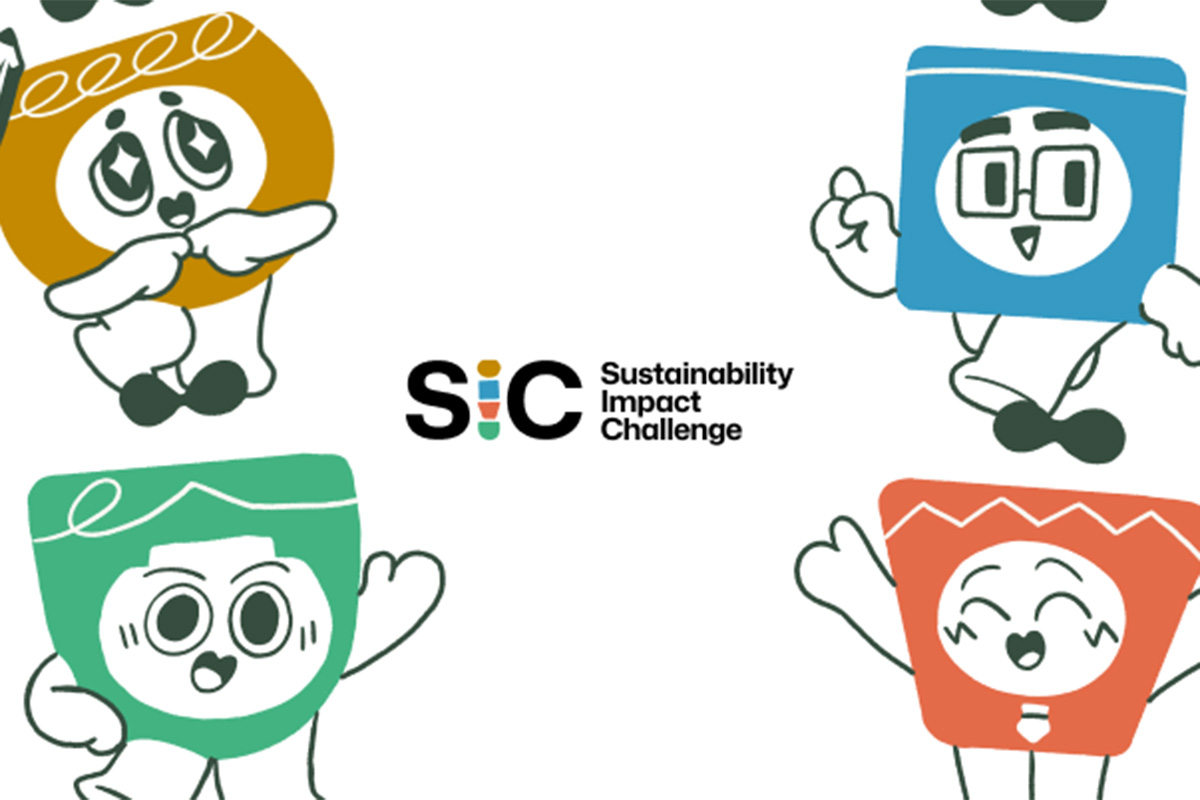

The Sustainability Impact Challenge (SIC) is a distinguished initiative led by RMIT University in partnership with the University of Social Sciences and Humanities, International University, Vietnamese German University, and leading industry collaborators, to drive meaningful change through sustainability education.
The program begins with an RMIT-certified sustainability course delivered by expert lecturers, followed by a 2-round competition where participants address challenges set by four industry-leading companies. Winning teams will collaborate with these companies to implement their proposals, gaining valuable real-world experience.
Through this journey, SIC 2025 aims to cultivate a sustainability mindset among participating students, preparing them to thrive in a green workforce across diverse industries.
Last year, RMIT students joined us to crack green business challenges for Highlands Coffee and Maersk. The winning teams are now turning their bold, sustainable ideas into real-world impact!

MOTUL is a global leader in high-performance lubricants, trusted in motorsports, automotive, and industrial applications. Committed to sustainability, Motul prioritises renewable, biodegradable, and recyclable materials while maintaining top-tier performance. The company pioneers eco-friendly lubricants, including ester-based oils and emission-reducing formulations. Through initiatives like the European Ibiolab project and ISO 14001 certification, Motul continues to innovate for a greener future.

Bosch is a global leader in engineering and technology, trusted across automotive, industrial, and consumer solutions. Committed to sustainability, Bosch prioritises energy efficiency, circular economy principles, and climate-neutral innovations while maintaining top-tier performance. The company pioneers eco- friendly technologies, including electrification, hydrogen solutions, and Al-driven energy optimisation. Bosch continues to drive innovation for a greener future.

Panasonic is a Japanese multinational known for its cutting-edge consumer electronics and automotive advancements. In Vietnam, Panasonic has been recognised among the Top 50 Sustainable Enterprises for its commitment to environmental protection, including efforts to minimise carbon emissions and enhance energy efficiency. Through partnerships and long-term sustainability efforts, it continues to shape a better future for both people and the planet.

Rize is an agritech platform dedicated to revolutionising sustainable rice cultivation in Vietnam through cutting-edge, data-driven solutions. Their holistic approach integrates precision farming, climate-smart techniques, and strong collaborations with local stakeholders to drive long-term ecological and economic resilience. By pioneering these efforts, Rize is transforming Vietnamese rice farming into a more sustainable, efficient, and eco-friendly industry.
The Sustainability Impact Challenge welcomes ambitious students ready to shape a sustainable future. To join, you must meet the following criteria, which would be assessed through our registration form:

Stage |
Date |
Activity |
|---|---|---|
| Registration | 7 Apr | Registration opens |
| 16 May | Registration closes | |
| Round 1 | 29 May | Round 1 Induction |
| 15 Jun | Case Reveal | |
| 19 Jun | Pitching and Judging | |
| Sustainability Courses | 7 Jun | Overview of sustainability, UN SDGs |
| 8 Jun | Sustainability frameworks, policy, and regulations | |
| 14 Jun | Balancing economic, environmental, and social aspects | |
| 15 Jun | Mini Conference | |
| Round 2 | 8 Sep | Final Pitching |









If you’re a Year 2+ university student (even if you are not from RMIT, VGU, IU, or USSH, or if you are a foreigner!), you’re eligible! You don’t need prior sustainability experience to join as we welcome students from all fields of study. Registrations are to be done individually, and we will help you to form a team later.
We designed SIC as a through-and-through experience, from learning sustainability foundations to solving real-world challenges and implementing your ideas. Winners get the chance to intern with our amazing partners, and for that to work, we need participants who are ready to dive deep and take on internships. Year 2+ students have the academic and professional readiness to make the most of this journey, ensuring you can go from mindset building to solution implementation.
Yes, the course is mandatory—it’s your starting point to learn sustainability basics and deepen your thinking before diving into the competition. Plus, you’ll have the chance to connect with peers, lecturers, and mentors who’ll support you in the competition. If you have already finished the course at RMIT SSET, you will only be required to attend afternoon’s sessions.
Yes, all participants who complete the course and competition will receive a certificate of participation from SIC.
You’ll choose a company (Bosch, Panasonic, Rize, or RMIT’s Department of Sustainability) on the first day of the course on a first come, first served basis. You will then form your team with those who picked the same case and work together to solve their sustainability case. After two rounds, 4 winning teams get to get onboard with 4 said companies to implement the solutions.
You’ll choose a company (Bosch, Panasonic, Rize, or RMIT’s Department of Sustainability) on the first day of the course on a first come, first served basis. You will then form your team with those who picked the same case and work together to solve their sustainability case. After two rounds, 4 winning teams get to get onboard with 4 said companies to implement the solutions.
Different universities mean diverse styles and experiences, something we want to leverage at SIC for fresh perspectives and innovative solutions. Requiring 3+ prevents isolation (e.g., 4 from one, 1 from another) and boosts adaptability, which is vital for your future employment.
Each company brings a unique sustainability challenge. For example, Rize is tackling rice farming challenges in Vietnam, while Bosch focuses on office operations. You’ll learn the specifics after choosing a company, but expect real-world problems that need creative, sustainable solutions.

Sustainability Department
Email: sustainability.consult@rmit.edu.vn
Ms. Phuong Trinh - Manager Sustainability
Email: phuong.trinh8@rmit.edu.vn



